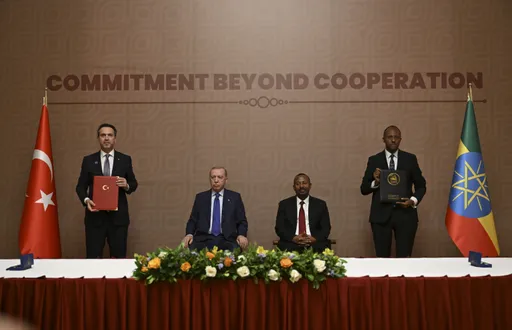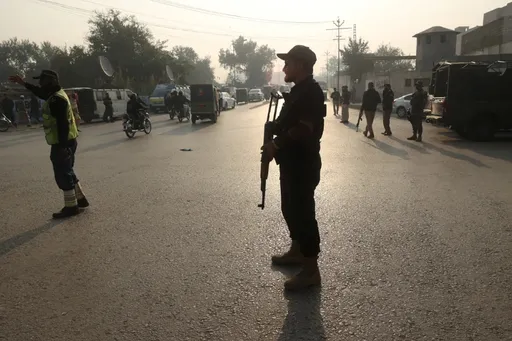Sudan’s technocrat Prime Minister Abdalla Hamdok survived an assassination attempt on Monday as his cavalcade was heading towards his office.
The assassination attempt sparked various speculations about who could be behind it and what their motive was.
While the Sudanese Islamic Youth Movement - Sudan Taliban, which has not been heard before - claimed responsibility for the country’s first assassination attempt of its kind, regional experts argue that the real perpetrators could be found somewhere between the country’s powerful military and remnants of the old regime.
A year ago, Sudan’s autocratic leader Omar al Bashir was ousted following months of popular protests against his rule, which was replaced by a transitional government led by Hamdok, a proven economist with an impressive resume. Bashir has been imprisoned since then.
The Hamdok government has emerged after tense negotiations between the military and opposition groups, which have been mainly led by the Freedom and Change Forces. Hamdok will supposedly bring the country to its first free elections in more than two decades.
Despite the unusual success of the Sudanese revolution in a region where autocracy and military rule have just a few exceptions, the volatile nature of the country’s politics has made itself clear with the assassination attempt.
Military vs. revolutionary forces
Nearly two months before the failed assassination, a bunch of rogue officers also led a coup attempt, shutting down the capital’s airport. The infighting left at least two people dead as the two sides clashed each other in the streets of the capital. In the end, the coup attempt failed.
The assassination attempt could be the work of those officers, who are not happy about civilian-run government and have no interest in paving the way for free elections and democratic governance.
“Rest assured that what happened today will not stand in the way of our transition, instead it is an additional push to the wheel of change in Sudan," Hamdok wrote on Twitter.
“This attack is an extension of the attempts by the forces of regression to pounce on the Sudanese revolution and sabotage,” said the Sudanese Professionals’ Association, which is the core of the Freedom and Change Forces, in a statement.
The Hamdok government has recently indicated that Khartoum could extradite Bashir to the International Criminal Court (ICC) over his alleged war crimes, which also implicate other old regime elements, including some of the current top military officials.
General Mohamed Hamdan Dagalo, the former right-hand man of Bashir, is one of them, who was appointed a day before the assassination attempt to lead an economic council to tackle the country’s growing economic problems.
While Hamdok is a well-known and respected figure, especially among the leaders of the African continent, garnering a strong support from the protest movement, Dagalo, also known as Hemedti, is a member of the 11-member Sovereign Council, which exists next to the prime minister’s cabinet, replacing the Transition Military Council (TMC).
Despite Hamdok’s civilian cabinet backed by the Freedom and Change Forces, Dagola and other generals are the real rulers of Sudan, who might send a message to the prime minister that he is not safe at all.
The US and its Middle Eastern allies, Saudi Arabia, the UAE and Israel have supported the toppling of Bashir, having close relations with both Hamdok and Dagalo.
Until the assassination attempt, both figures appeared to work together to lead the country.
But Saudi Arabia and the UAE, which recently appear to have become resentful of the power of the protest movement and possibly Hamdok, have better relations with Sudanese military and might also have a hand in the assassination attempt.
In Sudan, there are also shadowy forces who have benefitted from illicit dealings under the long-imposed Western sanctions over the country, and would not like to see Khartoum be free from sanctions. They might also have played a role in the assassination attempt.
Washington has signalled that if the Hamdok government implements its reform package, it will lift sanctions over the country.
Leftist groups
The country’s leftist groups, which have also been emboldened after the success of the revolution, are not happy about Sudan’s rapprochement with the US and the Arab Gulf, thinking that it will make Khartoum part of the capitalist system.
Hamdok has worked for several international organisations, holding a British passport.
While they publicly express their dislike, it’s not all clear that leftists groups have reached a level of frustration to take the life of the country’s first civilian prime minister.























